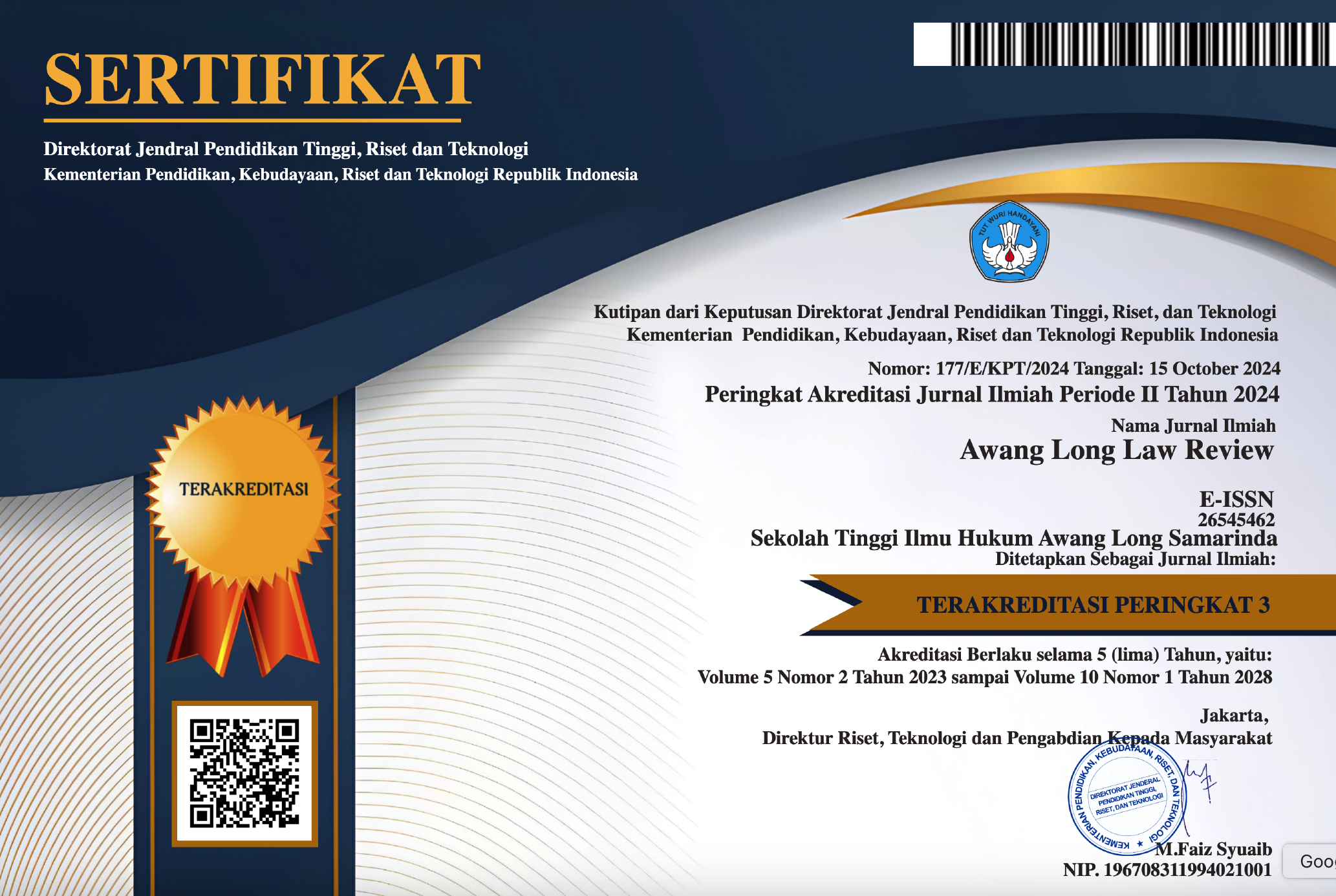THE PRINCIPLE OF HONESTY IN THE FIRE INSURANCE AGREEMENT IN INDONESIA IN REALIZING A LEGAL BALANCE FOR THE PARTIES
Abstract
Insurance under the Law of the Republic of Indonesia Number 2 of 1992 concerning Insurance Business Chapter 1, Article 1: "Insurance or Coverage is an agreement between two or more parties, whereby the insurer binds itself to the insured by accepting the insurance premium, to provide reimbursement to the insured due to loss, damage or loss of expected profits, or legal liability to third parties who may be subject to the insured, arising from an uncertain event, or to provide a payment based on the death or life of an insured person. Indonesian Civil Code (Civil Code) Article 1338 paragraph (3), only mention that all contracts are carried out in good faith. No further explanation what is meant by the good faith. Even if there iws a provision that tries to define goodwill, but the definition is also causing confusion, therefore, to be able to understand the meaning of good faith more clearly must be seen in the interpretation of good faith in judicial practice. The problem is how to apply the principle of honesty in the fire and reinsurance insurance agreement and its impact on the insurance company and the insured? How can the insured sue the reinsurance company in fire insurance for the loss suffered? and How are dispute settlements arising from honesty not exercised by the parties in fire insurance agreements? The research in this Dissertation is to illustrate Law Science and the normative aspect, is a practical science, focusing attention to assess the application of norms that exist in positive law about the principle of honesty which is one of the principles in the insurance law which is very important in the insurance agreement. The result of the research is the implementation of the principle of honesty in the fire insurance and reinsurance agreement is an absolute thing done. The Fire Insurance Agreement, as is the case with the treaty in general, is subject to 4 (four) important principles for the validity of an agreement under the Civil Code, the principle of freedom of contract, the principle of consesualism, the principle of pacta sunt servanda, the principle of good faith and the personality principle.







